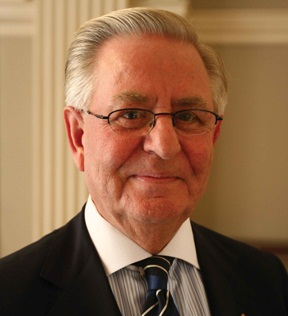Personally, I expected it to be a demonstration of only a few thousand that would be dispersed in a matter of hours. However, I was pleasantly surprised to see millions of Egyptians, in all governorates, demonstrate spontaneously in a revolt against the Mubarak regime. They overcome the barrier of fear and genuinely risked their lives for the sake of having a better country. I am talking here about the “Day of Rage” on 28 January 2011.
On the eve of the Day of Rage, I was in a meeting with the leaders of our party, the Democratic Front Party, who discussed the best method of launching a newspaper that would oppose Mubarak’s regime, when a couple of youngsters briefed us on their political attempt, planned for the following day. As party leaders were busy contemplating the tiny risks and calculated moves in opposition of a regime that used to frame and manipulate all political parties, our party’s youth and a few other political organisations had categorically refused to play by the regime’s rules and decided to revolt against it.
A few months prior 25 January 2011, I witnessed a conversation between one of our party leaders and a young political activist who had spent a few days in prison for illegally demonstrating against the Mubarak regime. The party leader was trying to persuade him against further involvement in demonstrations and explained that the party would not be able to beg the state police to release him again. Our activist responded that he would continue demonstrating and that the party should not worry about his imprisonment. I realised then that Egyptian youths have a different mindset than that of our traditional political leaders; they were willing to give up their lives for the sake of reforming our country.
I was not the only citizen who realised that Egypt will be changed by its youths. The ruling regime has been closely monitoring thousands of youth activists and doing its utmost to prevent them from organising demonstrations. The harsh measures employed in dealing with young people and the false accusations of espionage levelled against them are examples of the many attempts being made to marginalise youth in our society and to blame them for our country’s persisting deficiencies.
The 25 January Revolution was a genuine and spontaneous attempt to change Egypt by establishing freedom, justice, and dignity while the events of 30 June 2013 – whether defined as a revolution or a military coup – were well planned and fully secured. Egyptians were allowed to demonstrate against the Muslim Brotherhood with the complete backing of the media. The 30 June uprising had an almost carnival-like atmosphere – whereas everyone who took part in the January 25 Revolution was fully aware that they were risking their lives.
The 30 June uprisings aimed to get rid of the ruling Muslim Brotherhood regime and were completely successful on all counts. They not only managed to remove the Brotherhood from power but also outlawed them, dismantled their organisation, political party, and even the Brotherhood NGOs that had been registered and active during Mubarak’s era. In contrast, it is fair to label 25 January as a failed revolution that concluded in additional deterioration of justice, freedom, and the national economy.
I used to place blame on youth revolts for making a few, unintentional, mistakes that may have contributed to our revolution’s failure. However after observing the vague political attitudes of National Salvation Front politicians who were, in some manner, leading the 30 June uprising – attitudes that resulted in the loss of any real reforms – I came to sympathise with and appreciate the genuine attempt by our youth to make Egypt a better place.
Not one of our youngsters have ruled Egypt for a single day, yet many Egyptians unfortunately blame them for the errors committed by the ruling regime. Egypt has been, and to great extent still is, vulnerable to many unpleasant scenarios. Nonetheless, this does not justify blaming a segment of the society that demands the application of true democratic values, while providing excuses for our ruler, who is repeating the mistakes of his predecessors.
“Will the youths revolt again?” This is a question that is often raised by many people. As long as the original demands of the revolution are not met, Egyptians will certainly revolt again. Unfortunately nobody is expecting the next revolt to follow the same peaceful path that we witnessed five years ago. Far from preventing our youth from revolting, the repressive methods and tools employed over the past few years will, on the contrary, enhance their motivation. In a country where the youth account for two-thirds of the population, their energy and desire for change are certainly much more powerful than the regime’s brutal methods of government. It is only a matter of time before another revolutionary wave erupts.
Mohammed Nosseir is an Egyptian liberal politician working on reforming Egypt on true liberal values, proper application of democracy and free market economy. Mohammed was member of the Higher Committee, and headed the International Relations of, the Democratic Front Party from 2008 to 2012.



